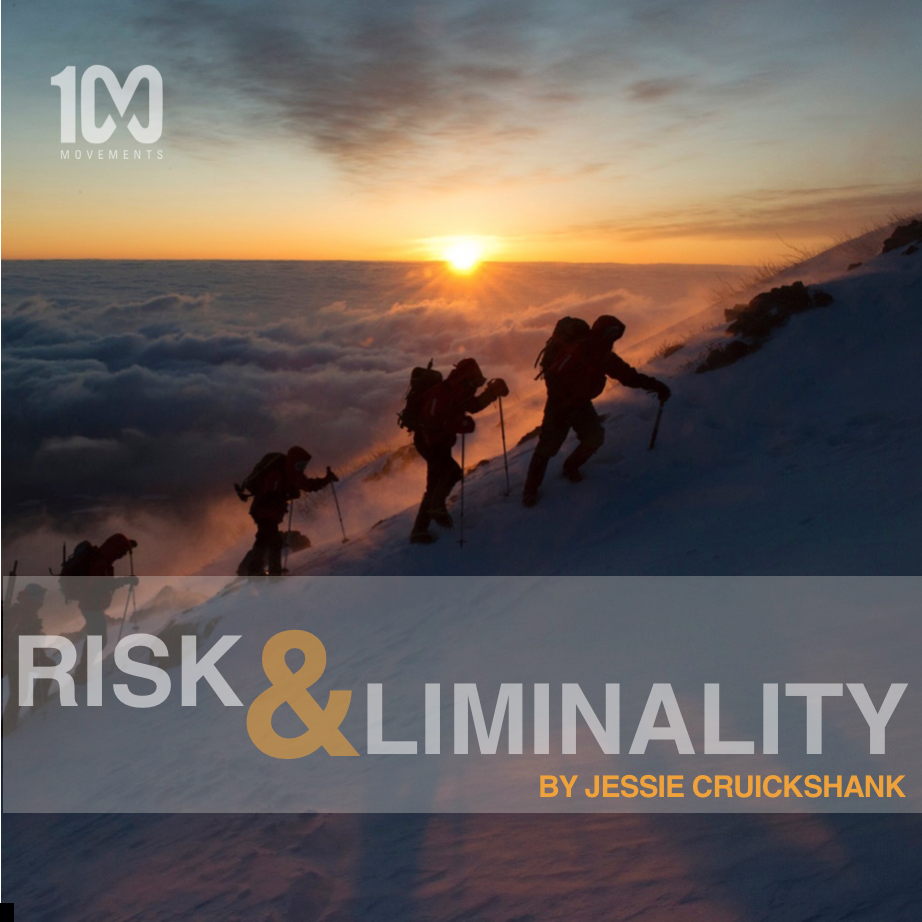*NOTE* This post originally appeared on the 100Movements.com website on October 25, 2016. You can see it here.
“The person who risks nothing does nothing, has nothing, is nothing, and becomes nothing. He may avoid suffering and sorrow, but he simply cannot learn and feel and change and grow and love and live.”
Leo Buscaglia
Liminality is an anthropological term used to describe a threshold experience, or a season in between two other longer, more defined seasons. One common example is boot camp, where a person is no longer a civilian, not quite a fully recognized soldier. Another one that used to be more common but is less so is a 4-year college experience, where a person is no longer a child, but not quite an adult fully engaged in society.
In human, adult, and faith development, liminality can be seen as the transitions between stages. In spiritual metaphors, they are often described as valleys or wilderness seasons where we are broken and reformed. It is to the church’s detriment that we are not more intentional in engaging liminality.
I view discipleship as the process of walking with people through liminal spaces. It is in these spaces that people are the most teachable, most willing to let go of the good to take hold of the better, and most willing to risk loss to gain Christ. I believe the in order to be a disciple, one has to embrace the in-between and not-yet-formed parts of our personhood. None of us has arrived or learned all lessons from the throne of heaven. Even today we each have several liminal spaces in our soul that Jesus is walking us through. There are places we are formed and places we are being re-formed.
Scripture says in 2 Corinthians 3:18 And we all, with unveiled face, beholding the glory of the Lord, are being transformed into the same image from one degree of glory to another. For this comes from the Lord who is the Spirit. (ESV) This is the process of liminal living. In communitas, we stand with each other in these spaces, between the now and the not yet, between the current and the becoming. We live prophetically for one another, just as Jesus does for all.
For me, risk comes into play in two different, yet parallel ways. I believe that risk serves as the rails on which transformation runs. On one side you have the authenticity that risk creates. When we experience risk, our brain has less resources to use for maintaining a social façade. When faced with risk, our motives, our prejudices, our doubts, and our faith is revealed. Risk reveals our most authentic selves. Christianity was never meant to be a safe haven or a means of earthly security. Perhaps in our pursuit of abundant living over an orphan mindset we have conflated grace with ease and peace with safety.
The second rail of risk in liminal spaces is expressed in 2 Corinthians 3:18 in the call to live with unveiled faces. To live unveiled before one another and before God is risky. We have all experienced rejection from those who claimed to love us, and many of us have experienced human rejection in the name of religion. Perhaps to live unveiled and vulnerable is the greatest risk of all. But the promise of 2 Corinthians 3:18 is that such living causes us to be formed by his Glory into his image. Any veil we bring filters, hinders, and diminishes the process of transformation. This can cause liminal seasons to become lifetimes.
Risk is necessary for the fullness of purpose of liminal seasons to be realized. It is a key ingredient for communitas. It is integral for discipleship and transformation. It is inherent to the Christian journey. Only by letting go of the misguided perception of how we ‘should’ be, and embracing both risk and liminality, can we engage in the communitas necessary to be the church and movements we are called to be.


Recent Comments